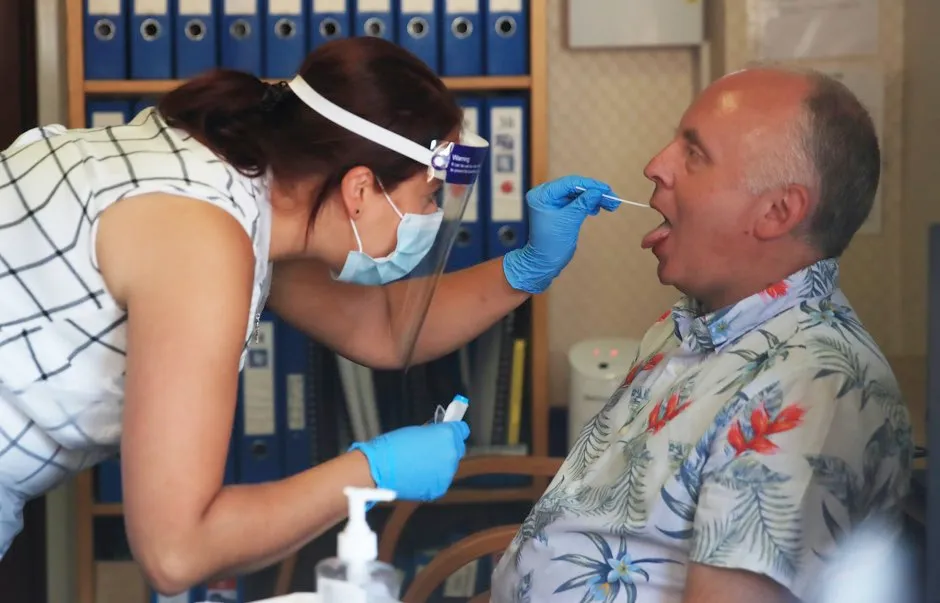Loss of smell associated with COVID-19 infection is “much more profound” when compared with a bad cold or flu, scientists have found.
A team of researchers across Europe, which included experts from the University of East Anglia, compared the experiences of loss of taste and smell of people who had COVID-19 alongside those with other upper respiratory tract infections.
In the small study involving 30 people, they also found that unlike common cold or flu, those with COVID-19 cannot detect bitter or sweet tastes.
Read more about the symptoms of COVID-19:
- COVID-19: ‘Atypical symptoms’ common in care home patients
- Asymptomatic coronavirus found in 'up to 20 per cent of people'
- Coronavirus 'most infectious' in first weeks of symptoms
The researchers believe their findings, published in the journal Rhinology, could help in developing smell and taste tests as a more rapid screening tool to identify those who may have COVID-19.
Lead researcher Professor Carl Philpott, from University East Anglia’s Norwich Medical School, said: “This is very exciting because it means that smell and taste tests could be used to discriminate between COVID-19 patients and people with a regular cold or flu.
“Although such tests could not replace formal diagnostic tools such as throat swabs, they could provide an alternative when conventional tests are not available or when rapid screening is needed – particularly at the level of primary care, in emergency departments or at airports.”

The team carried out smell and taste tests on 10 COVID-19 patients, 10 people with bad colds, and a control group of 10 healthy people.
Prof Philpott said: “We found that smell loss was much more profound in the COVID-19 patients.
“They were less able to identify smells, and they were not able to identify bitter or sweet tastes. In fact, it was this loss of true taste which seemed to be present in the COVID-19 patients compared to those with a cold.”
According to Prof Philpott, the findings add to the theory that COVID-19 infects the brain and central nervous system.
He said: “Our results reflect, at least to some extent, a specific involvement at the level of central nervous system in some COVID-19 patients.
“It is particularly interesting that COVID-19 seems to particularly affect sweet and bitter taste receptors, because these are known to play an important role in innate immunity.”
He said that more research is needed to understand whether genetic variations in people’s bitter and sweet taste receptors might predispose them to COVID-19, or whether the infection changes how these receptors function.
Q&A: How does anosmia affect your sense of smell?
The medical term for having no sense of smell is ‘anosmia’. People can be born with no sense of smell, due to genetic factors, but most lose it later in life, sometimes permanently. Anosmia has many causes, including head injury, dementia, nasal polyps, and even snake bites.
But the most common cause, accounting for up to 40 per cent of cases, is a viral infection. Indeed, one reported symptom of the coronavirus disease COVID-19 is a loss of smell.
It’s not yet known what causes this, but expert Luis Villazon says he experienced it for himself when he had a mild case of COVID-19 earlier this year. "My sense of smell gradually returned, but even after three weeks, I still couldn’t smell coffee," he says.
More COVID-19 questions answered:

